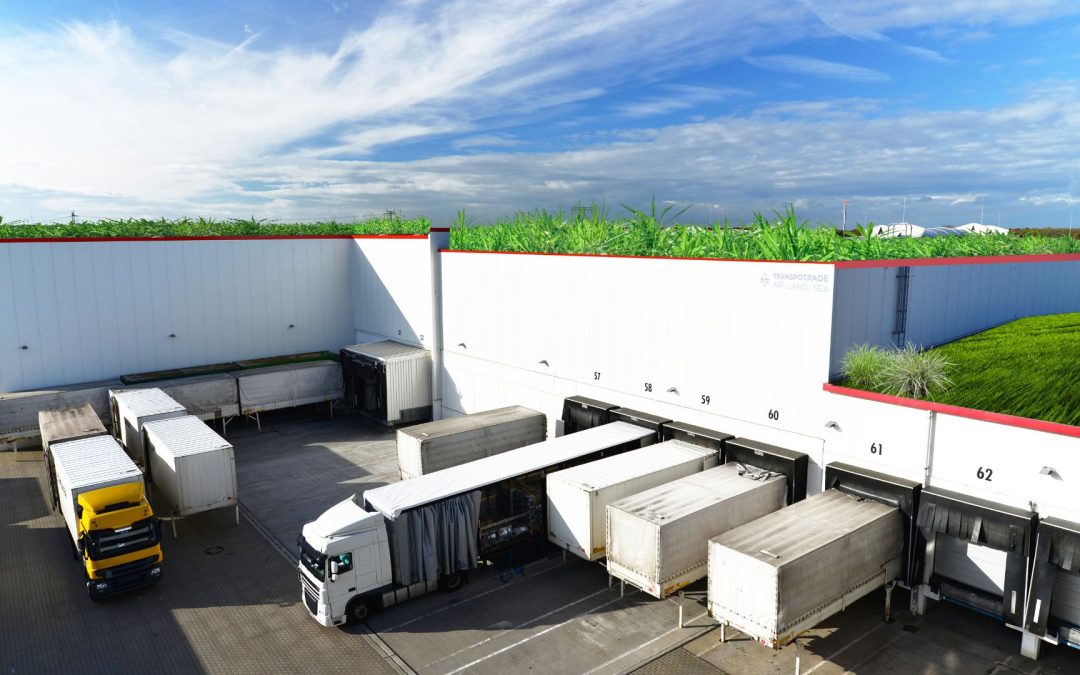As the global logistics sector races to reduce its environmental footprint, the past week has brought a wave of promising developments in sustainability. From fleet electrification to green warehousing and cutting-edge infrastructure, logistics companies are embracing environmentally conscious strategies to meet climate targets and respond to customer expectations. With increasing regulatory pressure and investor interest in Environmental, Social, and Governance (ESG) practices, the shift toward greener supply chains is no longer optional—it’s essential. This article explores the most notable green logistics announcements from the past week and highlights how companies like Transpotrade are helping shape a cleaner future for freight and logistics.
Electric Fleet Expansion Around the Globe
Fleet electrification remains a cornerstone of green logistics, and recent news illustrates that progress is accelerating. Amazon UK has placed its largest order yet for electric heavy goods vehicles, adding over 150 units to its last-mile delivery network. Meanwhile, in India, the city of Bengaluru announced a major expansion of its electric public bus fleet under the PM e-Drive scheme, aiming for over 10,000 electric buses to combat urban pollution. Australia is also stepping up, with Volvo Trucks confirming domestic electric truck manufacturing, backed by major orders from logistics leaders like Linfox. Hydrogen-powered freight is gaining traction as well, with the UK’s Russell Group piloting a mixed hydrogen-electric fleet as part of its goal to reach net-zero emissions by 2026. These developments signal an industry-wide commitment to cutting tailpipe emissions and reshaping the future of cargo transport.
Green Warehousing Takes Root
Beyond vehicles, warehousing practices are also becoming greener. Prologis has launched a new prefabricated platform designed to rapidly deploy EV charging stations at logistics hubs, tackling a key bottleneck in the electrification of supply chains. Companies are also investing in sustainable construction, like Leschaco’s implementation of LEED-certified buildings to lower energy usage and carbon output from day one. In the U.S., firms like Nebraska Warehouse are promoting internal sustainability through eco-friendly packaging, smart energy systems, and AI-driven inventory optimization. These initiatives highlight how sustainable warehousing can lead to reduced operational costs, improved efficiency, and stronger environmental performance.
Infrastructure Innovation and Policy Support
As logistics transitions toward sustainability, enabling infrastructure has become a focal point. Governments and logistics partners are investing in large-scale electrification, not just of fleets but of surrounding support systems. Subsidies and grants—like those backing Volvo’s truck production in Australia—are vital in bridging cost gaps and encouraging private-sector participation. On the private side, platform-based infrastructure rollouts such as Prologis’ EV charging hubs represent scalable solutions that support both current and future green fleets. These ecosystem-wide upgrades are essential in creating long-term viability for low-emission logistics networks.
Transpotrade’s Role in Driving Sustainable Logistics
For businesses navigating the green transformation, expert logistics partners make all the difference. Transpotrade, with over four decades of industry expertise, is actively helping companies align with global sustainability standards. Through digital freight forwarding platforms, route optimization, emissions tracking, and green supply chain consulting, Transpotrade empowers clients to reduce carbon output while boosting efficiency. Whether transitioning to electric fleets or redesigning distribution centers for sustainability, Transpotrade is committed to helping clients make measurable progress toward ESG goals.
Conclusion: A Greener Supply Chain Future
The logistics industry’s response to environmental challenges is growing in ambition and action. From cleaner vehicles to smarter buildings and innovative infrastructure, companies are demonstrating that green logistics is not only feasible but financially and operationally advantageous. These recent announcements reflect a global shift toward low-emission logistics models that prioritize sustainability and performance in equal measure.
As stakeholders from every corner of the supply chain adopt green logistics initiatives, collaboration becomes key. Companies that partner with forward-thinking logistics providers like Transpotrade are better positioned to turn sustainability into a competitive advantage. The momentum is clear—and now is the time to drive forward with purpose.

